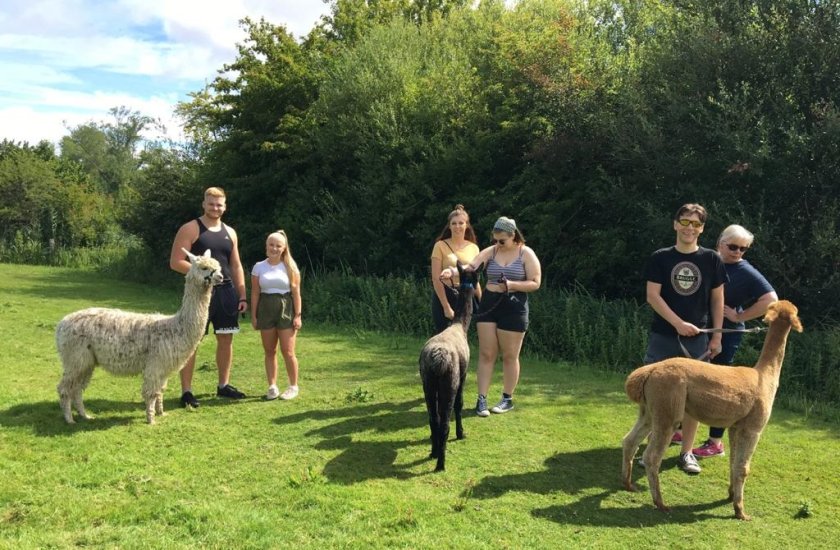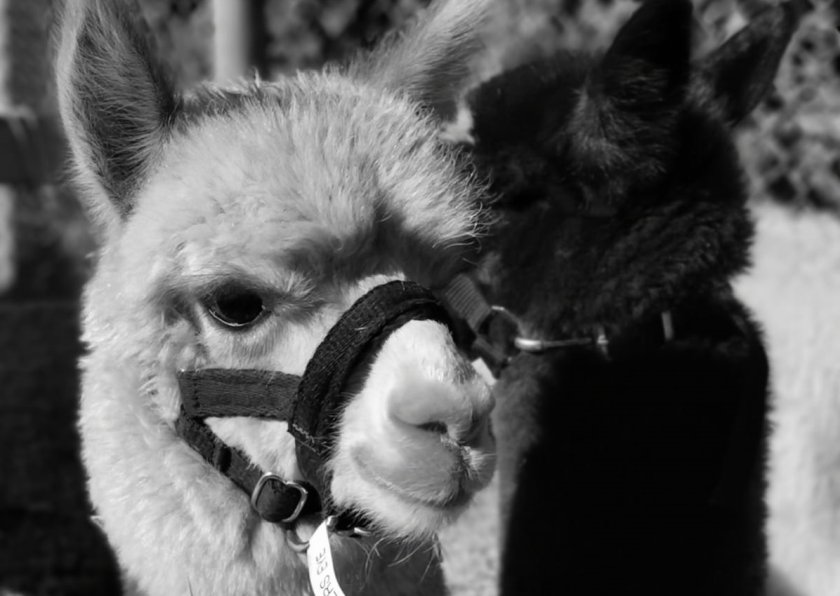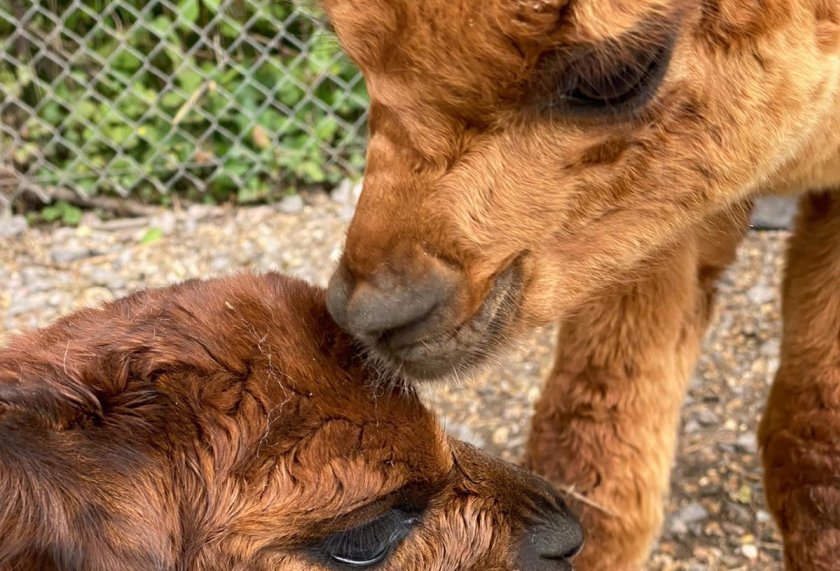
Alpaca walking is a relatively new activity that has become increasingly popular in recent years, providing a new source of income for many farms.
Alpacas, a domesticated species of South American camelid, are known for their soft, luxurious wool, which is used to make clothing and other items.
Alpacas are also known for their gentle and friendly nature making them ideal for walking, and in turn an opportunity for on-farm diversification.
Hensting Alpacas, which has been walking alpacas for 12 years, says they are easily trainable as long as they are started at a young age of around about 6 to 8 months.
The Hampshire-based firm, which operates from a 12-acre site in Eastleigh, explains more in this article.
Training baby alpacas is a rewarding experience that can help create a strong bond between the alpaca and its owner.
The first step in training baby alpacas is to establish a routine. Alpacas are creatures of habit, so it is important to provide them with a consistent schedule.
This includes feeding times, exercise times, and play times. Establishing a routine will help the alpaca become accustomed to its environment and will make it easier to train.
The next step is to create a safe and comfortable environment for the alpaca. Alpacas are naturally skittish animals, so it is important to provide them with a secure and stress-free environment.
This includes providing them with plenty of space to roam and explore, as well as providing them with a variety of toys and activities to keep them entertained.

Once the alpaca is comfortable in its environment, it is time to start the training process. The best way to train a baby alpaca is through positive reinforcement.
This means rewarding the alpaca with treats and praise when it does something correctly. It is important to be consistent with the rewards, as this will help the alpaca understand what is expected of it.
It is also important to be patient when training a baby alpaca. Alpacas are intelligent animals, but they learn at their own pace. It's important to be consistent and patient when training an alpaca, as this will help it learn faster.
Finally, it is important to remember that training a baby alpaca is a long-term commitment. Alpacas can live for up to 20 years, so it is important to be prepared for the long-term commitment of caring for an alpaca. This includes providing the alpaca with proper nutrition, exercise, and veterinary care.
Training baby alpacas is a rewarding experience that can create a strong bond between the alpaca and its owner. It is important to be patient and consistent when training an alpaca, as this will help it learn faster.

Additionally, it is important to remember that training a baby alpaca is a long-term commitment, so it is important to be prepared for the long-term commitment of caring for an alpaca.
Alpaca walking is a great way to get outdoors and enjoy nature while also providing a source of income.
Alpaca walking businesses typically charge a morning rate for their services, which can range from £28 to £80. This rate can vary depending on the location, the number of alpacas, and the length of the walk.
Alpaca walking can be a profitable business, depending on the number of customers and the amount of time spent walking.
It is important to consider the cost of caring for the alpacas, such as food, veterinary care, and housing. Additionally, it is important to factor in the cost of advertising and marketing, as well as the cost of any necessary equipment.
Alpaca walking is a unique and enjoyable way to spend time with these gentle animals, while also providing a source of income.
It is important to consider the cost of caring for the alpacas, as well as the cost of advertising and marketing, when determining whether alpaca walking is a profitable business.
With the right business plan and dedication, alpaca walking can be a successful and profitable venture.
Hensting Alpacas have been walking alpacas for some 12 years now and have gained thousands of customers and a great reputation.
Operating from a 12-acre site in Eastleigh, Hampshire, the walk and morning consists of an informative talk along with an introduction to the alpacas.
Then there is a beautiful walk along the river Navigation down to the bottom meadow, where pictures are taken and the alpacas are hand fed by the customers.
